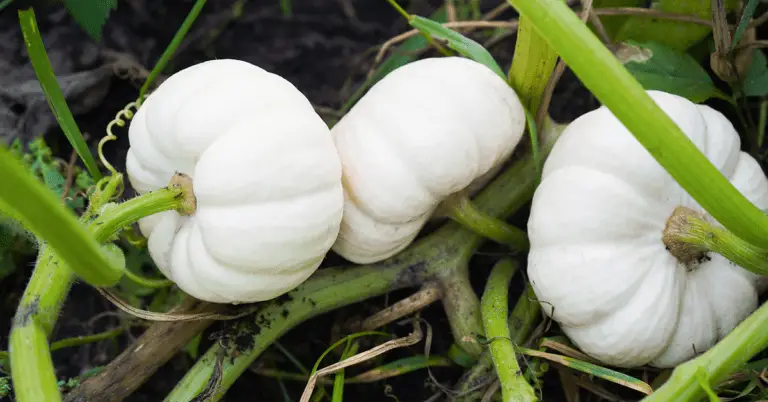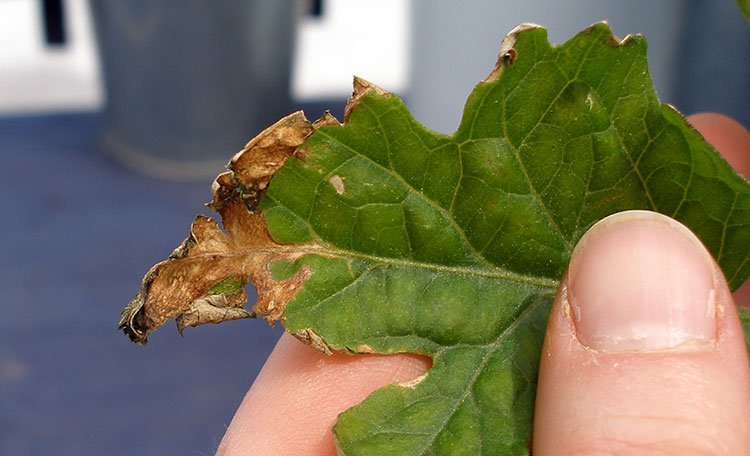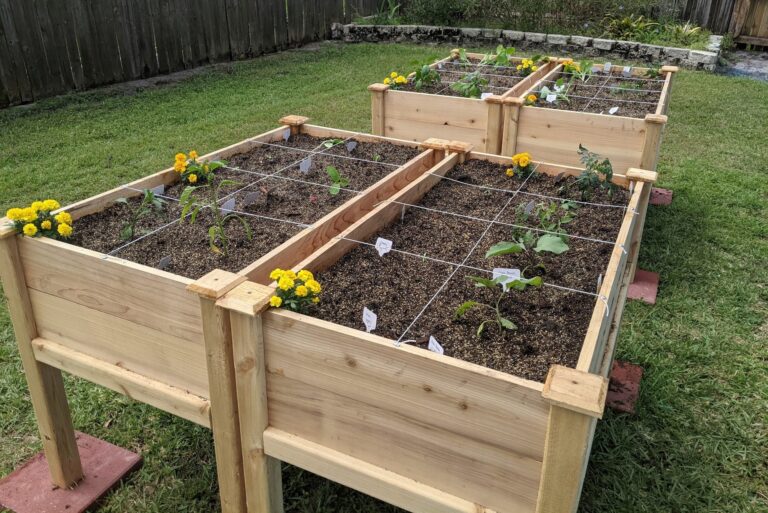The Best Mediterranean Herbs: 100% Must-Haves for Your Garden
Table of Contents
Benefits of Growing Mediterranean Herbs in Your Garden
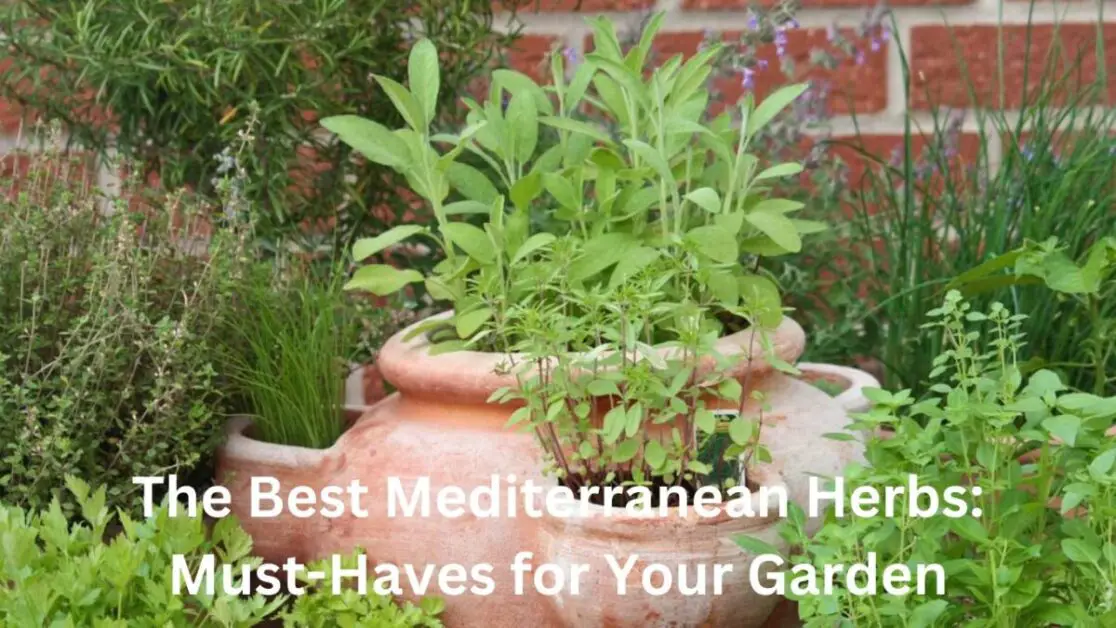
Growing Mediterranean herbs in your garden offers a plethora of benefits that extend beyond adding flavor and aroma to your culinary creations. These herbs, such as rosemary, thyme, basil, and oregano, are not only a delight for the senses but also contribute to your overall well-being.
One of the key advantages of cultivating Mediterranean herbs is their resilience and adaptability. These herbs are well-suited to warm and dry climates, making them an excellent choice for regions with limited rainfall or those prone to drought. Their ability to thrive in these conditions means you can enjoy a bountiful herb garden even in challenging environments. Furthermore, their natural resistance to pests and diseases reduces the need for chemical pesticides, making them an eco-friendly choice for sustainable gardening practices.
Understanding the Ideal Growing Conditions for Mediterranean Herbs
Mediterranean herbs, renowned for their robust flavors and aromatic profiles, thrive in unique growing conditions. Understanding the ideal environment for these herbs is essential for their successful cultivation in your garden. With the right combination of climate, sunlight, soil, and moisture, you can create the perfect habitat for these Mediterranean beauties.
First and foremost, Mediterranean herbs require a warm and sunny climate to flourish. These herbs originate from regions with long, hot summers and mild winters, such as the Mediterranean basin. They thrive in temperatures ranging from 70 to 85 degrees Fahrenheit during the growing season. Therefore, if you live in a cooler climate, it’s crucial to provide them with adequate protection or consider growing them in containers that can be moved indoors during colder months.
Moreover, Mediterranean herbs crave abundant sunlight. They require at least six to eight hours of direct sunlight daily to promote healthy growth and maximize their flavor potential. Ensure that your garden space or selected containers are positioned in areas with sufficient exposure to the sun’s rays. If you have limited access to direct sunlight, consider using supplemental grow lights to meet the herbs’ light requirements.
Additionally, well-draining soil is key to keeping Mediterranean herbs happy. These herbs are adapted to sandy, rocky soils with low fertility, which mimic their native environments. To replicate these conditions, amend your soil with organic matter and incorporate coarse sand or gravel to improve drainage. This will prevent waterlogged roots and reduce the risk of fungal diseases. Conduct a soil test to assess its pH level and make necessary adjustments to maintain a slightly alkaline pH of around 7.5.
Lastly, watering plays a crucial role in the success of your Mediterranean herb garden. These herbs prefer moderate moisture levels but despise overly wet conditions. Allow the soil to dry out between waterings, as they are more tolerant of drought than excessive moisture. Consider using drip irrigation systems or watering at the base of plants to avoid wetting the foliage, which can make them susceptible to fungal infections.
By creating a warm and sunny environment, providing well-drained soil, and managing watering practices, you will establish the ideal growing conditions that Mediterranean herbs crave. With their needs met, these remarkable herbs will thrive, rewarding you with an abundance of aromatic and flavorful leaves to enhance your culinary creations.
Selecting the Right Mediterranean Herbs for Your Garden
When it comes to selecting the right Mediterranean herbs for your garden, there are several factors to consider. One of the first things to keep in mind is the climate in your region. Mediterranean herbs typically thrive in warm and sunny environments with well-drained soil. Examples of Mediterranean herbs that are well-suited to these conditions include rosemary, thyme, oregano, and sage.
Another important aspect to consider is the purpose of your herb garden. Are you looking to enhance the flavors of your culinary creations? Or perhaps you are interested in harnessing the medicinal properties of these herbs. Understanding the specific uses and benefits of different Mediterranean herbs will help you make informed choices. For instance, if you enjoy cooking Mediterranean dishes, basil and parsley would be excellent additions to your herb garden. On the other hand, if you are interested in herbal remedies, lavender and chamomile would be ideal choices. By considering your specific needs and preferences, you can select the Mediterranean herbs that will best suit your garden.
Essential Tips for Planting and Caring for Mediterranean Herbs
Planting and caring for Mediterranean herbs requires some essential tips to ensure their successful growth and development. These herbs thrive in warm and sunny environments with well-drained soil. When it comes to planting, it is recommended to start with healthy seedlings or young plants from reputable nurseries. Transplant them into well-prepared soil, providing enough space for their roots to spread. Remember to water the plants thoroughly after planting to help them establish their roots.
Once planted, proper care is essential for the overall health of Mediterranean herbs. These herbs prefer a regular watering schedule, with deep watering once or twice a week, rather than frequent shallow watering. It is important to avoid overwatering, as it can lead to root rot and other related issues. Additionally, applying mulch around the base of the plants can help retain moisture and regulate soil temperature. Pruning is another crucial aspect of caring for Mediterranean herbs. Regularly trimming the plants promotes bushier growth and helps maintain their shape.
Exploring the Culinary Uses of Mediterranean Herbs in Your Kitchen
Mediterranean herbs offer a delightful array of flavors and aromas that can elevate any culinary creation. Their robust and distinct profiles add depth and complexity to dishes, making them a staple in Mediterranean cuisine. From the pungent notes of rosemary to the refreshing zest of basil, these herbs not only enhance the taste of our meals but also impart a touch of the Mediterranean to our kitchens.
One of the most versatile Mediterranean herbs is undoubtedly basil. Its vibrant green leaves and sweet yet peppery taste make it a popular choice in Italian cuisine. Whether used to make a classic Caprese salad or to infuse oils for a homemade pesto, basil brings a burst of freshness to any dish. Additionally, thyme, with its earthy and slightly minty undertones, is a fantastic herb for pairing with roasted meats and vegetables. Its subtle flavor adds depth to stews, soups, and sauces, making it a go-to choice for chefs around the world.
By incorporating these and other Mediterranean herbs into your culinary repertoire, you can elevate your dishes and transport yourself to the sun-drenched shores of the Mediterranean. The possibilities are endless, and the flavors are bound to impress even the most discerning palates. So, why not embark on a culinary adventure and explore the world of Mediterranean herbs in your kitchen today?
Harnessing the Medicinal Properties of Mediterranean Herbs
Mediterranean herbs have long been prized for their culinary and aromatic qualities. However, these herbs also possess powerful medicinal properties that have been utilized for centuries. From promoting digestion to reducing inflammation, the medicinal benefits of Mediterranean herbs are truly remarkable.
One notable example is the rosemary herb, which contains a compound called rosmarinic acid. This compound has been found to have anti-inflammatory and antioxidant properties, making it beneficial for a range of conditions, including cardiovascular disease and Alzheimer’s disease. In fact, a study published in the Journal of Medicinal Food found that rosemary extract can help protect against brain aging and cognitive decline.
Another Mediterranean herb with impressive medicinal properties is oregano. Oregano contains a compound called carvacrol, which has been shown to have antimicrobial, antiviral, and anti-inflammatory effects. Research has indicated that oregano oil can be effective against bacteria such as E. coli and Staphylococcus aureus, as well as viruses such as herpes and norovirus.
These are just a few examples of the many medicinal properties found in Mediterranean herbs. As you explore the benefits of these herbs, you’ll discover a wealth of natural remedies that can support your overall health and well-being. Whether you incorporate them into your daily cooking or prepare them in herbal infusions and extracts, harnessing the medicinal properties of Mediterranean herbs can be a wonderful addition to your holistic approach to wellness.
Incorporating Mediterranean Herbs in Your Home Remedies and Natural Beauty Products
Incorporating Mediterranean herbs in your home remedies and natural beauty products can provide numerous benefits for your overall well-being. These herbs are known for their aromatic qualities and therapeutic properties, making them a valuable addition to your daily skincare and self-care routine.
One popular Mediterranean herb that is often used in natural beauty products is lavender. Lavender is known for its calming and soothing effects, making it perfect for creating homemade bath salts, body oils, and facial sprays. Its antiseptic properties can also help prevent acne and skin irritations, making it a great choice for those with sensitive skin.
Another Mediterranean herb that is commonly used in home remedies is rosemary. This herb is known for its antioxidant properties and can be used to create a refreshing and invigorating hair rinse. Simply steep a few sprigs of rosemary in boiling water, let it cool, and then use it as a final rinse after shampooing. This can help promote hair growth, reduce dandruff, and leave your hair with a healthy shine.
By incorporating Mediterranean herbs into your home remedies and natural beauty products, you can harness their beneficial properties and enhance your overall well-being. Whether it’s creating your own facial scrubs, hair treatments, or soothing bath soaks, these herbs can offer a natural and effective alternative to commercial products. So why not explore the world of Mediterranean herbs and unlock their potential for a healthier and more radiant you?
Creating a Beautiful and Functional Design for Your Mediterranean Herb Garden
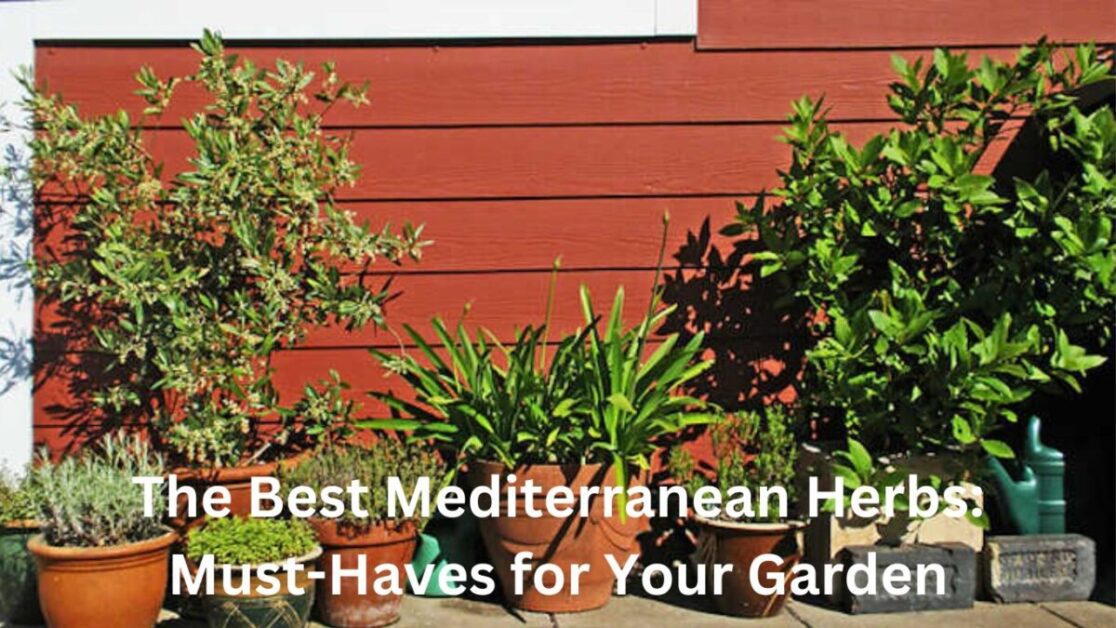
Creating a beautiful and functional design for your Mediterranean herb garden requires careful planning and consideration. The layout and arrangement of your garden will not only enhance its aesthetic appeal but also optimize its productivity.
Firstly, it is essential to choose an appropriate location for your Mediterranean herb garden. These herbs thrive in warm and sunny climates, so selecting a spot that receives at least six hours of direct sunlight per day is crucial. Consider the natural elements of your garden, such as wind patterns and potential shade from nearby trees or buildings. Additionally, ensure that the soil in your chosen area is well-draining, as Mediterranean herbs prefer dry conditions.
Once you have identified the ideal location, it’s time to design the layout of your garden. Consider grouping herbs with similar water and light requirements together. This not only simplifies maintenance but also creates a visually appealing arrangement. Incorporating raised beds or containers can provide both a decorative element and a practical solution for controlling soil moisture and temperature.
Furthermore, maximize the use of vertical space by incorporating trellises, pergolas, or hanging baskets. Climbing herbs like rosemary or thyme can add an interesting visual dynamic to your garden while optimizing space utilization. Remember to incorporate pathways between herb beds for easy access and maintenance.
By carefully planning the layout and utilizing the available space, you can create a beautiful and functional design for your Mediterranean herb garden. The thoughtful arrangement of herbs based on their specific needs will not only enhance the overall aesthetic appeal but also optimize growing conditions and ultimately increase their productivity. Stay tuned as we delve deeper into the companion planting techniques that can further enhance the benefits of Mediterranean herbs in your garden.
Companion Planting: Maximizing the Benefits of Mediterranean Herbs in Your Garden
Companion planting is an essential strategy for maximizing the benefits of Mediterranean herbs in your garden. By carefully selecting and pairing different herbs together, you can create a harmonious ecosystem that promotes growth, repels pests, and enhances the flavors of your harvests.
One of the key advantages of companion planting with Mediterranean herbs is their ability to deter common garden pests. For example, planting basil alongside tomatoes can help repel insects like aphids and hornworms, while chamomile can keep away pests such as cabbage moths and ants. This natural pest control not only reduces the need for harmful pesticides but also maintains the health and vitality of your garden.
In addition to pest control, companion planting can greatly improve the overall flavor of your crops. For instance, planting oregano near peppers can intensify their pungency, while rosemary can enhance the taste of beans and cabbage. These flavor-enhancing combinations not only make your harvests more delicious but also add depth and complexity to your culinary creations.
By adopting companion planting techniques with Mediterranean herbs, you can create a thriving garden that not only repels pests but also enriches the taste of your harvests. Stay tuned for more tips and tricks on maximizing the benefits of Mediterranean herbs in your garden.
Overcoming Common Challenges in Growing Mediterranean Herbs
When it comes to growing Mediterranean herbs, there are a few common challenges that gardeners may encounter. One challenge is providing the ideal growing conditions for these herbs, as they typically thrive in hot and dry climates. However, with some careful planning and preparation, it is possible to replicate these conditions in your garden.
Another challenge is selecting the right Mediterranean herbs for your garden. With so many options to choose from, it can be overwhelming to decide which herbs to grow. Factors such as space availability, sunlight exposure, and personal preferences play a role in this decision-making process. Fortunately, there are resources available to help guide you in choosing the best herbs for your specific gardening situation.
Overcoming these challenges is possible with the right knowledge and techniques. By understanding the ideal growing conditions for Mediterranean herbs and carefully selecting the right ones for your garden, you can create a thriving herb garden that adds beauty and flavor to your culinary endeavors. With a little patience and perseverance, you can successfully grow Mediterranean herbs and enjoy their delightful aromas and flavors all year round.
Harvesting and Preserving Mediterranean Herbs for Year-Round Enjoyment
Preserving the vibrant flavors and aromas of Mediterranean herbs for year-round enjoyment is a gratifying endeavor for gardeners and culinary enthusiasts alike. By carefully harvesting and storing these herbs, you can savor their essence long after the growing season has ended.
Timing is key when it comes to harvesting Mediterranean herbs. The optimal time for harvesting is typically in the morning, after the dew has dried but before the sun is at its peak. At this time, the herbs are at their prime and contain the highest concentration of essential oils that contribute to their unique flavors. Simply snip the stems of the herbs, using sharp pruning shears or scissors, leaving enough foliage for the plant to continue growing. Harvesting regularly encourages robust growth throughout the season.
Once harvested, proper preservation techniques will ensure that your Mediterranean herbs retain their flavor and aroma. While fresh herbs can be used immediately, many enthusiasts prefer to store their surplus harvest for future use. Drying is the most common method of preserving Mediterranean herbs. It is best suited for herbs such as oregano, thyme, and sage, which have sturdy leaves and stems.
To dry herbs, tie small bundles together and hang them upside down in a warm, well-ventilated area away from direct sunlight. The drying process can take anywhere from several days to a couple of weeks, depending on the herb and the conditions. Once the herbs are fully dried, crumble or grind the leaves and store them in airtight containers, away from heat and light, to maintain their flavor and potency.
Exploring the Aromatic and Therapeutic Qualities of Mediterranean Herbs
Mediterranean herbs are not only prized for their culinary uses, but also for their aromatic and therapeutic qualities. These herbs are known to have a wide range of health benefits, making them a valuable addition to any garden or kitchen. The unique aroma of Mediterranean herbs, such as rosemary, thyme, and lavender, can instantly transport you to the sunny shores of the Mediterranean, while their therapeutic properties have been utilized for centuries in traditional medicine.
One of the key aromatic qualities of Mediterranean herbs is their ability to invigorate the senses and promote relaxation. The fragrance of these herbs can have a calming effect on the mind and body, helping to reduce stress and anxiety. In fact, research has shown that the essential oils derived from Mediterranean herbs contain compounds that can positively impact mood and emotions, making them an excellent choice for aromatherapy. Whether you choose to diffuse the oils, create homemade potpourri, or simply enjoy the natural fragrance of these herbs in your garden, their aromatic qualities can create a soothing and uplifting atmosphere in your home.
Furthermore, Mediterranean herbs are known for their numerous therapeutic properties. For example, rosemary has been shown to improve memory and concentration, making it a popular herb for students and professionals alike. Thyme, on the other hand, is a powerful antiseptic and can help fight against bacteria and viruses. And let’s not forget about lavender, which is renowned for its calming and sedative effects, making it a popular choice for promoting relaxation and sleep. These are just a few examples of the many medicinal qualities that Mediterranean herbs possess.
In conclusion, the aromatic and therapeutic qualities of Mediterranean herbs make them a wonderful addition to any garden or kitchen. Whether you choose to enjoy their fragrance or harness their healing properties, these herbs have much to offer. So why not explore the world of Mediterranean herbs and discover the myriad of benefits they can bring to your life?
Discovering the Historical and Cultural Significance of Mediterranean Herbs
Mediterranean herbs have a rich historical and cultural significance that spans centuries. These herbs have been used by various civilizations throughout history for their culinary, medicinal, and aromatic properties. The Greeks and Romans, in particular, greatly valued these herbs and incorporated them into their daily lives.
In ancient Greece, herbs like oregano, thyme, and rosemary were not only used in cooking but also had religious and medicinal purposes. The Greeks believed that herbs had mystical powers and could ward off evil spirits. They used them in religious ceremonies, rituals, and even as offerings to the gods. Additionally, they recognized the therapeutic benefits of Mediterranean herbs and used them to treat various ailments and promote overall well-being.
Similarly, the Romans also placed a high value on Mediterranean herbs. They believed that herbs played a crucial role in maintaining good health and hygiene. Roman soldiers would carry herbs, such as lavender and rosemary, to use as a form of personal hygiene and to ward off diseases. They also used herbs to enhance the flavor of their cuisine, creating a legacy that continues today in Italian cooking.
The historical and cultural significance of Mediterranean herbs is a testament to their enduring popularity and usefulness. These herbs not only add flavor and aroma to our dishes but also provide a connection to the past and a link to ancient traditions. Exploring the historical and cultural context of these herbs can deepen our appreciation for their role in human civilization and inspire us to incorporate them into our own lives and gardens.
Using Mediterranean Herbs for Pest Control in Your Garden
Mediterranean herbs are not only prized for their culinary and medicinal properties, but they can also play a crucial role in pest control in your garden. These aromatic plants are known to release natural compounds that repel pests, making them a valuable addition to any sustainable gardening practice. By strategically incorporating Mediterranean herbs into your garden, you can effectively deter common pests and protect your plants without relying on harmful chemicals.
One of the key benefits of using Mediterranean herbs for pest control is their ability to attract beneficial insects. Many herbs, such as lavender, thyme, and oregano, produce flowers that not only add beauty to your garden but also serve as a magnet for predatory insects like ladybugs and lacewings. These beneficial insects feed on pests like aphids, mites, and mealybugs, keeping their populations in check. By creating a hospitable environment for these natural predators, you can naturally control pests without resorting to synthetic pesticides.
In addition to attracting beneficial insects, Mediterranean herbs also possess strong aromatic properties that act as natural repellents. For example, rosemary and sage release volatile oils that repel pests like mosquitoes, flies, and cabbage moths. Planting these herbs alongside susceptible crops can help deter pests and prevent damage to your plants. Furthermore, the strong scents of herbs like basil and mint can mask the aroma of desirable plants, making it harder for pests to locate their favorite food sources.
By harnessing the pest-repellent properties of Mediterranean herbs, you can create a healthier and more balanced garden ecosystem. Not only will these herbs provide you with delicious flavors and medicinal benefits, but they will also help protect your plants from unwanted pests. So why not invite these powerful allies into your garden and enjoy the benefits they bring?
Integrating Mediterranean Herbs into Your Sustainable Gardening Practices
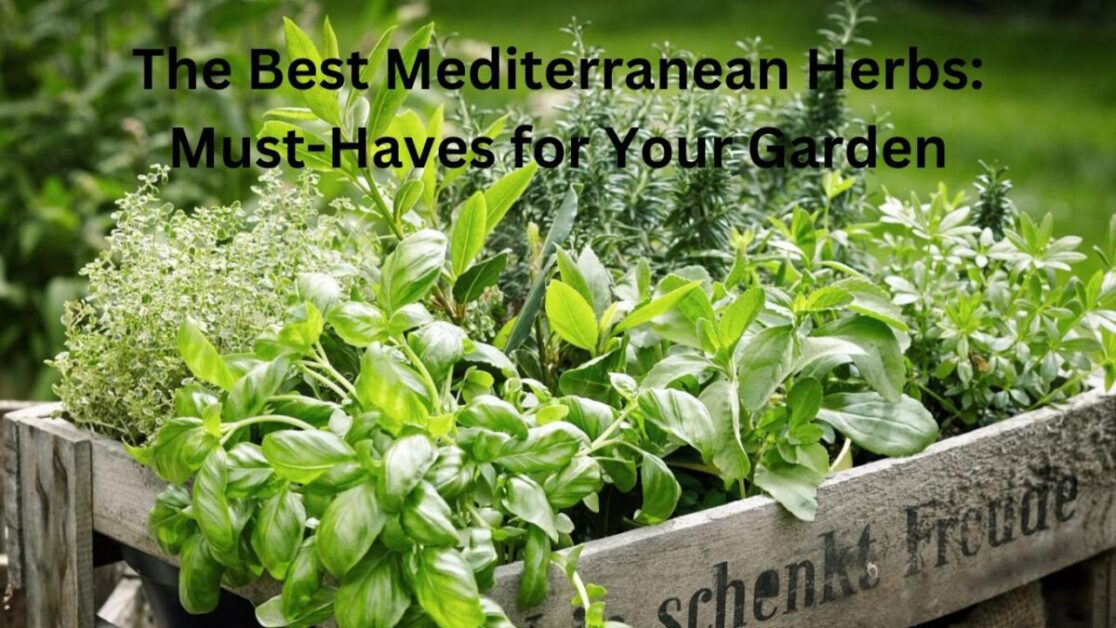
Integrating Mediterranean herbs into your sustainable gardening practices can bring numerous benefits to both your garden and the environment. These herbs, known for their aromatic and culinary qualities, thrive in regions with a Mediterranean climate due to their adaptability and resilience. By incorporating these herbs into your garden, you can conserve water, reduce chemical inputs, and promote biodiversity.
One way to embrace sustainable gardening with Mediterranean herbs is by practicing water-wise techniques. These herbs have evolved to withstand hot and dry conditions, making them ideal for low-water or xeriscaping gardens. By selecting drought-tolerant Mediterranean herbs such as rosemary, lavender, and thyme, you can reduce your water consumption significantly. Additionally, implementing mulching techniques can help retain soil moisture and suppress weed growth, further conserving water and reducing the need for synthetic herbicides. Embracing these sustainable watering strategies not only benefits your garden but also helps to preserve water resources, especially in areas prone to drought.
Another aspect of sustainable gardening with Mediterranean herbs is minimizing chemical inputs. These herbs are naturally resistant to pests and diseases, making them less dependent on synthetic pesticides and herbicides. By cultivating Mediterranean herbs, you can embrace organic gardening practices that eliminate the need for harmful chemicals. However, it is essential to monitor your plants for signs of pest infestation or disease and employ eco-friendly pest control methods when necessary. Utilizing companion planting techniques, where certain plants deter pests from others, can be an effective and sustainable way to maintain a healthy garden ecosystem.
Integrating Mediterranean herbs into your sustainable gardening practices not only adds beauty and flavor to your garden but also contributes to a greener and healthier environment. By implementing water-wise techniques and minimizing chemical inputs, you can create an eco-friendly garden that sustains both your plantings and the surrounding ecosystem. So, why not explore the diverse world of Mediterranean herbs and embark on a sustainable gardening journey?
Here’s a table listing some of the best Mediterranean herbs that are must-haves for your garden, along with their key characteristics and uses:
| Herb | Scientific Name | Key Characteristics | Uses |
|---|---|---|---|
| Rosemary | Rosmarinus officinalis | Fragrant, evergreen shrub with needle-like leaves | Culinary (seasoning meats, roasted vegetables), aromatic, medicinal |
| Thyme | Thymus vulgaris | Low-growing perennial with small, aromatic leaves | Culinary (soups, stews, meats, sauces), medicinal (antibacterial, antifungal) |
| Basil | Ocimum basilicum | Fragrant annual with tender leaves | Culinary (pesto, salads, sauces), aromatic, medicinal (antioxidant, anti-inflammatory) |
| Oregano | Origanum vulgare | Perennial herb with pungent flavor and small leaves | Culinary (Italian and Greek cuisines, pizza), medicinal (antibacterial, antifungal) |
| Sage | Salvia officinalis | Woody perennial with velvety leaves and strong aroma | Culinary (stuffing, poultry, sausages), medicinal (digestive aid, sore throat remedy) |
| Lavender | Lavandula spp. | Fragrant perennial with slender stems and purple flowers | Aromatic (potpourri, sachets), culinary (flavoring desserts, teas), medicinal (calming, sleep aid) |
| Marjoram | Origanum majorana | Perennial herb with delicate leaves and sweet, mild flavor | Culinary (soups, stews, meats, salads), aromatic, medicinal (digestive aid, respiratory health) |
| Parsley | Petroselinum crispum | Biennial herb with flat or curly leaves | Culinary (garnish, salads, sauces), medicinal (diuretic, digestive aid) |
| Bay Laurel | Laurus nobilis | Aromatic evergreen tree or shrub with glossy, dark green leaves | Culinary (flavoring soups, stews, sauces), aromatic, ornamental |
| Fennel | Foeniculum vulgare | Perennial herb with feathery leaves and licorice-like flavor | Culinary (salads, soups, fish dishes), medicinal (digestive aid, respiratory health) |
These Mediterranean herbs are not only flavorful additions to your culinary creations but also beautiful and aromatic additions to your garden. They thrive in warm, sunny conditions with well-drained soil and are relatively low-maintenance once established. Enjoy growing and using these herbs to enhance the taste and aroma of your dishes while benefiting from their medicinal properties.
Sharing Your Love for Mediterranean Herbs: Hosting Herb Workshops and Exchanges
Hosting herb workshops and exchanges is a fantastic way to share your love for Mediterranean herbs and inspire others to explore their benefits. These interactive events provide a platform for gardening enthusiasts to come together, exchange knowledge, and learn from one another’s experiences.
During herb workshops, participants can gain practical insights into growing, caring for, and utilizing Mediterranean herbs in various ways. Engaging experts can deliver informative presentations, demonstrating different planting techniques, suitable growing conditions, and effective pest control methods specific to these herbs. Workshops can also include hands-on activities, such as herb harvesting and preservation demonstrations, allowing participants to enhance their practical skills. Additionally, workshops provide an opportunity for participants to taste and sample culinary creations made with Mediterranean herbs, showcasing their diverse flavors and versatility in the kitchen.
Similarly, herb exchanges are a valuable aspect of sharing herb-loving passions. These events enable gardeners to come together and trade their surplus Mediterranean herb seedlings or divisions, fostering a sense of community and camaraderie among herb enthusiasts. Participants can bring their own herb plants to exchange, creating an opportunity to diversify their herb collections and discover new varieties. The exchanges can also serve as a platform to discuss cultivation tips, troubleshoot common problems, and seek advice from fellow gardeners who have first-hand experience with Mediterranean herbs.
By hosting herb workshops and exchanges, you can not only deepen your own knowledge and skills but also inspire others to embrace the beauty and benefits of Mediterranean herbs. These events provide an avenue for like-minded individuals to come together, learn from each other, and foster a sense of community among herb enthusiasts. So why not organize a workshop or exchange in your area and share your passion for Mediterranean herbs with others?
How can I incorporate Mediterranean herbs into my home remedies?
Mediterranean herbs can be used in various home remedies, such as herbal teas, infused oils, and homemade salves. These remedies can help with common ailments like indigestion, headaches, and skin irritations.
Can I grow Mediterranean indoors?
Yes, many Mediterranean herbs can be grown indoors. It is important to provide them with sufficient sunlight, well-draining soil, and proper watering to ensure their healthy growth.
Are there any specific companion plants that work well with Mediterranean?
Yes, several companion plants can benefit Mediterranean herbs. Some good companions include lavender, rosemary, sage, and thyme. These plants can help deter pests, attract beneficial insects, and enhance the overall health of your herb garden.
What are the common challenges in growing Mediterranean?
Some common challenges in growing Mediterranean herbs include poor soil drainage, overwatering, and extreme temperature fluctuations. Additionally, certain herbs may be susceptible to pests and diseases, so it is important to monitor and address these issues promptly.
How do I harvest and preserve Mediterranean for year-round enjoyment?
To harvest Mediterranean herbs, you can trim the stems just above a leaf node. After harvesting, you can dry the herbs by bundling them and hanging them upside down in a well-ventilated area. Once dried, store the herbs in airtight containers away from direct sunlight.
What are some aromatic and therapeutic qualities of Mediterranean?
Mediterranean herbs are known for their aromatic and therapeutic qualities. For example, rosemary can improve focus and memory, while lavender can promote relaxation and reduce stress. Sage is often used for its antibacterial properties, and thyme is known for its expectorant and antiseptic properties.
Can Mediterranean be used for natural pest control in the garden?
Yes, certain Mediterranean herbs, such as basil, rosemary, and thyme, can be used to deter pests in the garden. Planting these herbs near susceptible plants can help repel insects and protect your garden naturally.
How can I integrate Mediterranean herbs into my sustainable gardening practices?
Mediterranean herbs are well-suited for sustainable gardening practices as they require minimal water, tolerate poor soil conditions, and attract beneficial insects. By incorporating them into your garden, you can reduce your environmental impact and promote a more sustainable approach to gardening.
What are some ways to share my love for Mediterranean herbs?
One way to share your love for Mediterranean herbs is by hosting herb workshops and exchanges. These events can provide an opportunity for enthusiasts to learn from each other, exchange plants or seeds, and share their knowledge and experiences with Mediterranean herbs.


